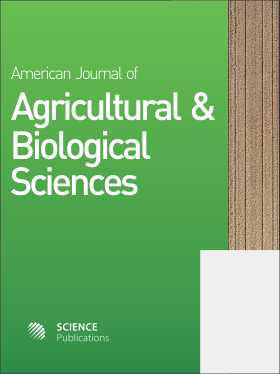Viability of Lactobacillus delbrueckii Under Human Gastrointestinal Conditions Simulated In Vitro
- 1 Department of Bioprocess, Unit of Biotechnology (UPIBI), National Polytechnic Institute (IPN), Ave. Acueducto s/n, Col. Barrio La Laguna Ticomán, México, 07340, Distrito Federal, Mexico
Abstract
Problem statement: Lactobacillus delbrueckii subsp. bulgaricus is a lactic bacteria mostly used in the production of yoghurt and it has an important probiotic activity that brings benefits to the human body. However, the gastrointestinal tract has aggressive conditions, such as the acid pH in the stomach and the bile in the duodenum, that reduce the viability of this bacteria. Approach: In order to evaluate the effect of the human gastrointestinal conditions on Lactobacillus delbrueckiis viability, a simulated in vitro gastrointestinal system was designed, which consisted of two reactors where stomach and human small intestine conditions were simulated. Results: Lactobacillus delbrueckii cells were treated in human gastric conditions simulated in vitro (gastric juice adjusted to pH 2, 37°C, 90 min and 50 rpm) and in intestinal conditions simulated in vitro (pancreatic juice adjusted to pH 6.8, 37°C, 150 min and 50 rpm) and in presence of a sample of food or beverages. A sample of typical Mexican food was added and at the end of the treatment 73% of the cells remained viable. This means 36.5 times more viability with respect to the cells treated under the same conditions in presence of a sample of milk with 8% starch. At the end of the treatment, the viability of cells treated in simulated in vitro gastrointestinal juices without sample of food or beverage (blank) was 1%. Conclusion: The results indicated that the in vitro simulated human gastrointestinal conditions were aggressive to the Lactobacillus delbrueckiis viability. To minimize this negative effect it is suggested that probiotics be consumed with some food because this could increase the probability that the bacteria reach the human colon in a large number and carry out their probiotic effect.
DOI: https://doi.org/10.3844/ajabssp.2010.37.42

- 7,561 Views
- 6,181 Downloads
- 38 Citations
Download
Keywords
- Probiotics
- functional food
- viability
